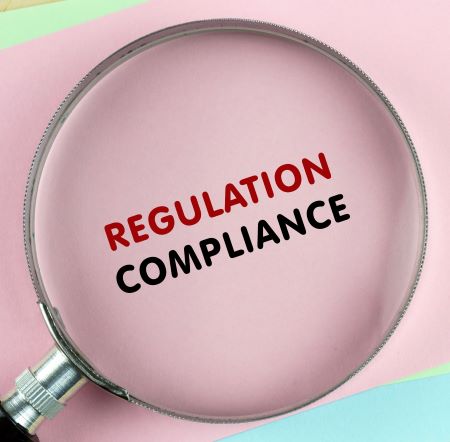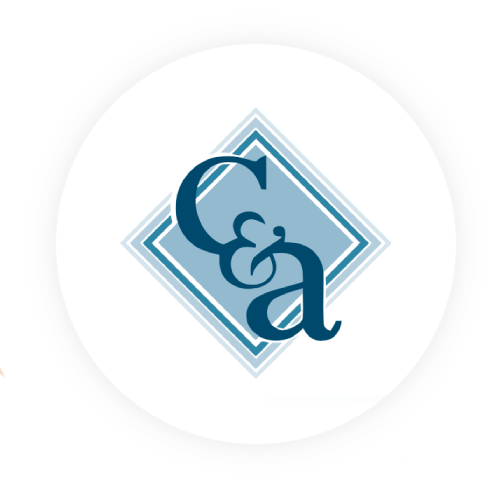What is Immediate Jeopardy?
Immediate Jeopardy defined by CMS , within their Core Guidelines is “a situation in which the provider’s noncompliance with one or more requirements of participation has caused or is likely to cause serious injury, harm, impairment, or death to a resident.” The Core Guidelines for Determining Immediate Jeopardy are in the CMS State Operations Manual Appendix Q. The Core Appendix Q is the resource used by surveyors when determining when to cite immediate jeopardy.
To cite immediate jeopardy, surveyors must determine that noncompliance caused or created a likelihood that serious injury, harm, impairment, or death to one or more recipients would occur or recur; and immediate action is necessary to prevent the occurrence or recurrence of serious injury, harm, impairment, or death to one or more recipients.
Immediate Jeopardy Decision Tree
CMS applies the following criteria to each requirement within each of the Conditions of Participation:
- Noncompliance: An entity has failed to meet one or more federal health, safety, and/or quality regulations.
- Serious Adverse Outcome or Likely Serious Adverse Outcome: As a result of the identified noncompliance, serious injury, serious harm, serious impairment, or death has occurred, is occurring, or is likely to occur to one or more identified recipients at risk.
- Need for Immediate Action: The noncompliance creates a need for immediate corrective action by the provider/supplier to prevent serious injury, serious harm, serious impairment, or death from occurring or recurring.
When surveyors determine that all three of the above criteria exist, Immediate Jeopardy will occur.
Physical Environment Triggers for Immediate Threat
There is an extensive list of physical environment findings that may trigger an Immediate Jeopardy Finding. These include situations such as significantly compromised fire alarm systems, sprinkler systems, emergency power supply systems, medical gas systems, compromised exits, and ligature risks.
What are the clinical areas of RISK for Immediate Jeopardy?
Your organization may be at risk for an Immediate Jeopardy if any of the following clinical situations are identified by the surveyors:
- Failure to protect patients from abuse
- Failure to prevent patients from neglect
- Failure to protect patients from psychological harm
- Failure to protect patients from undue medication consequences
- Failure to provide patients adequate nutrition and hydration
- Failure to protect patients from nosocomial infections
- Failure to practice standard precautions
- Failure to maintain sterile techniques during invasive procedures
- Failure to identify and treat nosocomial infections
- Failure to correctly identify individuals
- Failure to safely administer blood products
- Failure to safely monitor organ transplants
- Failure to provide patient safety from fire, smoke, and other environmental hazards
- Failure to educate staff on how to manage emergency situations
- Failure to provide initial medical screening, stabilization of emergency medical conditions and safe transfer for individuals with emergencies, and woman in active labor seeking emergency treatment (EMTALA)
Examples of situations that led to Immediate Jeopardy Findings:
- Patient death related to side rail entrapment.
- A patient receiving oxygen via nasal cannula used a cigarette lighter to light a cigarette. The patient caught fire, sustaining first degree burns on his hands and facial hair.
- An organization failed to maintain essential heating and air conditioning equipment, in a patient room, in safe, operating condition. Knobs were observed missing from individual heating units, consequently, staff controlled the temperature of rooms by plugging in and removing the electrical cords from the outlet. The manipulation of the electrical cords triggered sparks and fire emissions from the electrical outlets and resulted in burned and melted electrical plugs and wall outlets.
- The patient fell off the sliding board onto the floor, hitting their new, below the knee amputation (BKA) and wound. The resident’s surgeon was consulted after the fall. Due to the severe injury, the surgeon hospitalized the resident to convert the below knee amputation to an above the knee amputation.
- A staff person rolled the patient to one side of the bed and the patient rolled out of the bed to the floor, landing on her knees. The patient experienced increased pain and swelling to the knees that was not reported to the physician until five days later. X -rays for the knees showed an impacted right knee fracture. The patient died.
- The staff failed to initiate CPR on a patient with an order for a full code who was found unresponsive. The RN entered the room and found the patient without a pulse or respiration. The RN left the room to call the ambulance. No one, including the RN, returned to the patient’s room to initiate CPR.
- The facility failed to provide sufficient staffing to meet the individualized needs of each patient. The attending physician wrote multiple orders for a dermatology and surgical consult for a patient with a lesion on his head. The staff failed to follow-up on the consult. Further, the staff failed to provide wound care, treatments and tube feedings for another patient as ordered by the attending physician.
- The organization failed to provide a patient with a pureed diet and thickened liquids as ordered. The patient choked and aspirated on the regular food items and subsequently died.
- The staff failed to clean and disinfect a glucometer between the patient uses. The organization’s policy and the manufacturer’s instructions for cleaning and disinfecting the device were not followed.
- A nurse utilized the same Novolog pen to administer insulin to two, different patients. The shared usage of pens placed patients at risk for the transmission of blood borne pathogens.
- An organization failed to develop and implement post-discharge planning prior to discharging a patient with a recent below the knee amputation to the community. The organization failed to arrange for a home assessment, identify the patient’s needs, or make referrals to local agencies for support services prior to discharge. The patient was transferred to a home which the van driver reported as not being habitable with no electricity or running water.
Preventing an Immediate Jeopardy situation
To prevent an Immediate Jeopardy situation, you want to make sure that you have educated your staff on the organization’s policies and procedures and that your staff are deemed competent to perform the tasks required to give safe patient care. Manufacturer’s instructions for products and equipment need to be followed as well. Proactively assessing risk is a great tool that can be used to help demonstrate to surveyors that the risk has been identified and mitigated and the occurrence they discovered is, an isolated occurrence. Regularly scheduled rounding to observe staff perform their duties will also assist you in identifying practices that create risk of patient harm.
Staff education on the need to report both errors and near-misses is essential along with encouraging them to notify their supervisor if there are any issues, incidents, situations that they believe creates significant patient risk. The situation can then be investigated, and the organization can develop and implement an action plan to prevent the situation from happening again.
Preventing an Immediate Jeopardy citation
Prior to engaging with the survey team, be certain to understand the situation as it presented itself to the surveyor. Immediately, implement a stop-gap approach to mitigate the situation. Assemble policies, procedures, educational records, memorandums, and any other applicable documents so that in your discussion with the survey team, you are able to present all the available data that supports that your organization has a process, staff members have been trained and are skilled and the occurrence was an anomaly and limited to one occurrence.
In summary, an Immediate Jeopardy citation can be avoided. Understanding what it is, what the risks are for Immediate Jeopardy in your organization and developing and implementing a plan to prevent the situation from happening in your organization is imperative. If you need assistance in assessing, preventing, developing a plan, or completing an Immediate Jeopardy citation response, contact us at 704-573-4535, send us a message, or request a proposal.
References:
CMS State Operations Manual, Appendix Q


